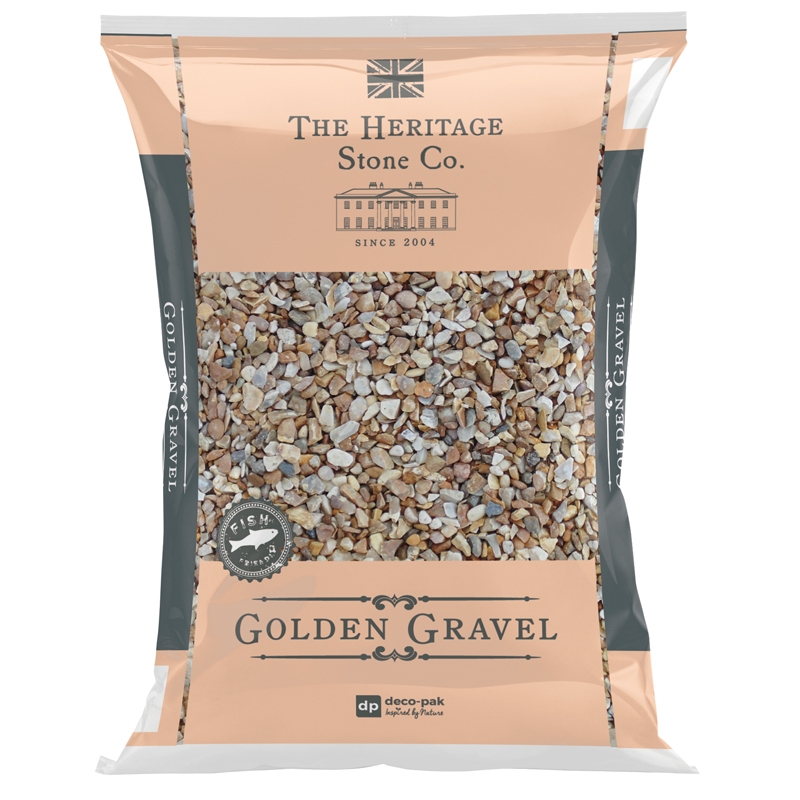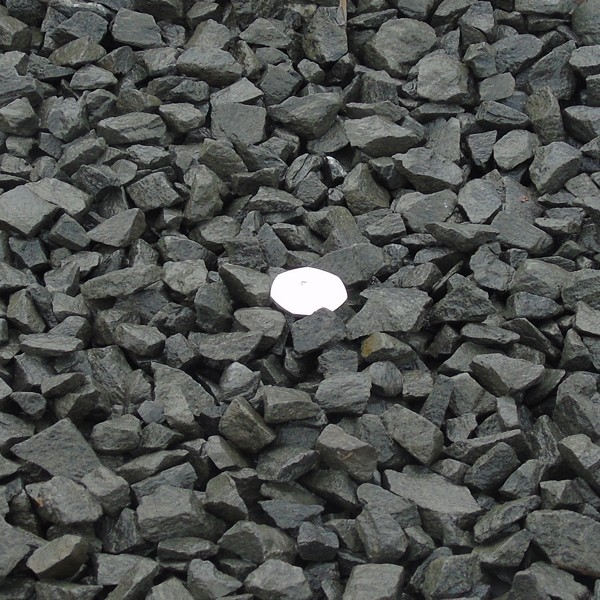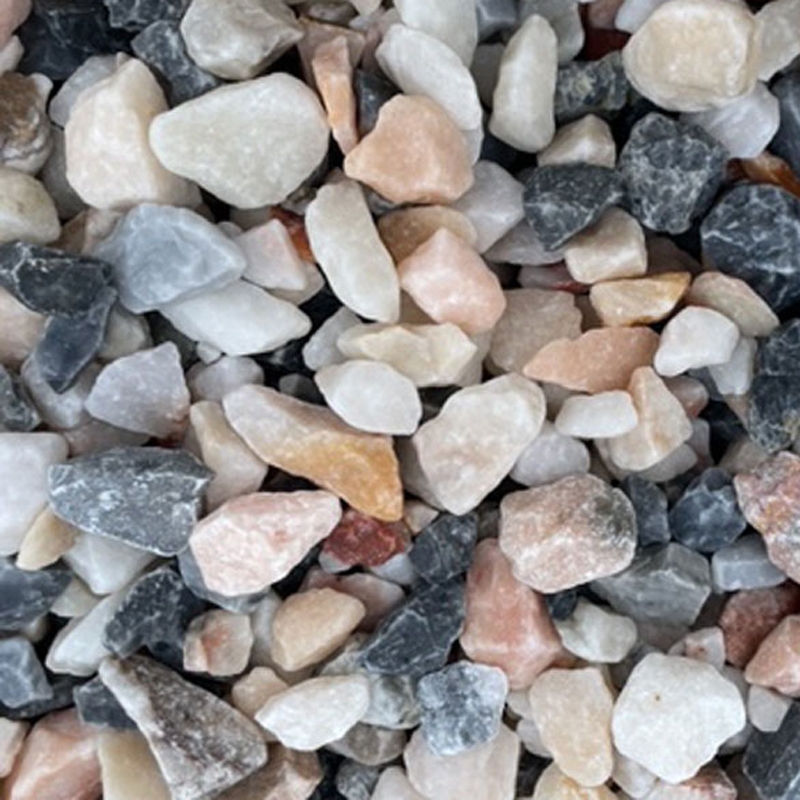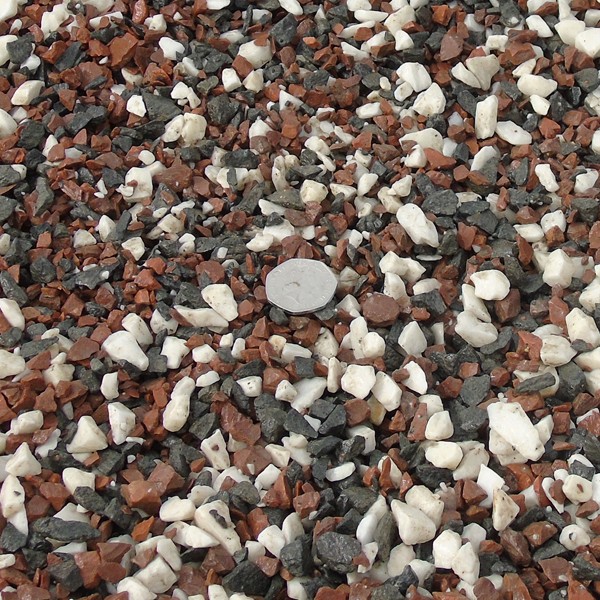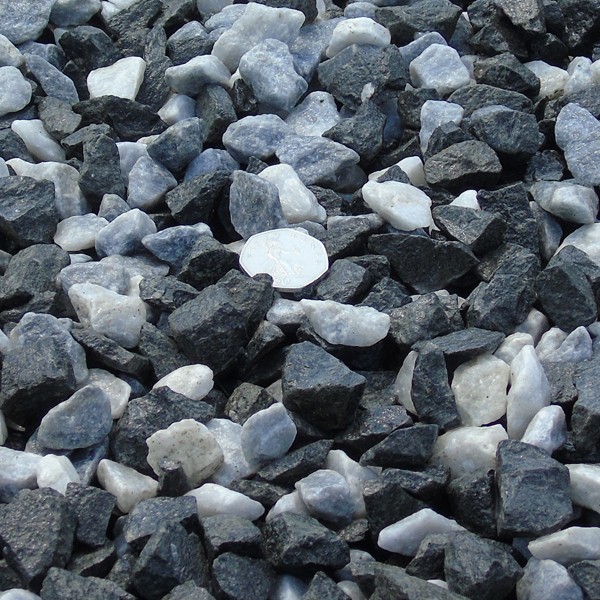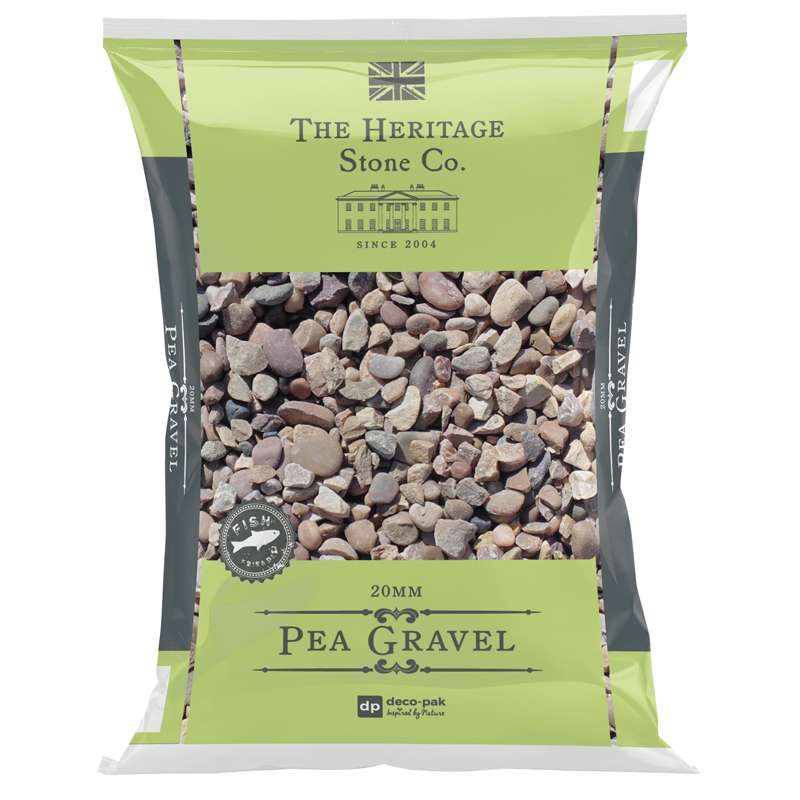Gravel is a type of decorative aggregate, and whether it is the right option for you will depend on your own specific requirements, such as performance priorities and where you are planning to use your choice. Here we take a look at some of the benefits of gravel and different forms of aggregates so that you can decide what best matches your needs.
The benefits of gravel
There are many benefits to gravel, not least its cost-effectiveness over large areas and the ease in which it can be put down and looked after.
Another major advantage when you buy garden gravel is the sheer opportunities that present themselves. Gravel is an extremely versatile choice of garden aggregate and you only need to browse through the Decorative Gardens website to see how many choices of colour, size, style and uses there are on offer.
It was once the case that the word 'gravel' made us think of a grey, gritty substance, but this is far from the case these days. Today, it can be an attractive addition to all sorts of outside spaces, whether you choose one type or decide on a mixture. If you are feeling creative, you can combine garden gravels to create different patterns or differentiate areas in your outside space. You can also use it to complement plants in borders or even in raised beds, planters and pots.
As mentioned previously, gravel can be used to create stunning yet easy to maintain gardens, offering weather-resistance that the likes of grass cannot emulate. One spectacular way to use gravel in the garden is to create a Mediterranean-inspired space, where attractive gravel is used to complement plants such as phlomis, santolina, euphorbias and lavender.



Other popular aggregate choices
Slate chippings
Slate decorative aggregates are also known as slate chippings and are another versatile option, although they may not be the best choice for busier driveways due to their tendency to break up under heavy weight.
Slate chippings such as Deco-Pak Blue Valley Slate and Deco-Pak 40mm Plum Slate can really come into their own in all sorts of different locations, including landscaped areas and paths. They are also great for adding an additional aesthetic element to decorative borders.
As well as setting off the appearance of shrubs, plants and small trees, these chippings can also be really effective as a means of preventing weed attacks. The chippings stop sunlight from getting to unplanted soil and prevent weeds from taking hold.
Slate chippings can also really improve the quality of the soil in your garden. This is because they help it to retain moisture when the weather is dry. Another benefit of this kind of decorative aggregate is that these chippings can often be cheaper than a lot of other landscaping products. They are also suitable for water features or fish ponds and are colour-fast and hard-wearing.
As if that were not enough, slate chippings are generally environmentally friendly. They have a low carbon footprint, making them as good for the planet as they are for your garden and your budget..

Rockery stone
As with most types of garden aggregates, there are many different uses for rockery stone and rocks, but creating a rock garden is undoubtedly one of the most popular. In the same way as gravel and other decorative aggregates, rockery stones can withstand harsh environments and offers low-maintenance affordable garden options that perfectly suit the busy modern gardener.
Another similarity that rockery stone has with the likes of gravel is the way in which it can be used to complement living features, such as plants and shrubs, throughout any season. A rock garden, for example, can be planted with combinations of flowering plants that can bloom at different times during the year. Add some evergreens and foliage, and you can be assured of visual interest and appeal whatever the weather.
Rockery stone is also great for creating water features and who doesn’t like the idea of a trickling stream in their garden? The likes of large Yorkstone Rockery pieces can be used to create a stairway effect, for example. Add a water source to produce a gentle flow to trickle down, and peace and tranquillity are almost guaranteed.
Garden stones and cobbles
Cobbles can have a host of different uses in a garden and can be a great alternative to slate or gravel when it comes to creating pathways. This is especially true if you are looking for something hard-wearing that will last for years and years to come.
Paving with cobblestones can allow a pathway or even a road to be used by heavy traffic all year round, without having to worry about weather conditions. Cobbles can prevent ruts from becoming a problem on tracks and have a major advantage of allowing water to drain away immediately. This type of pathway is also resistant to getting dusty during dry periods or muddy if the weather is wet.






